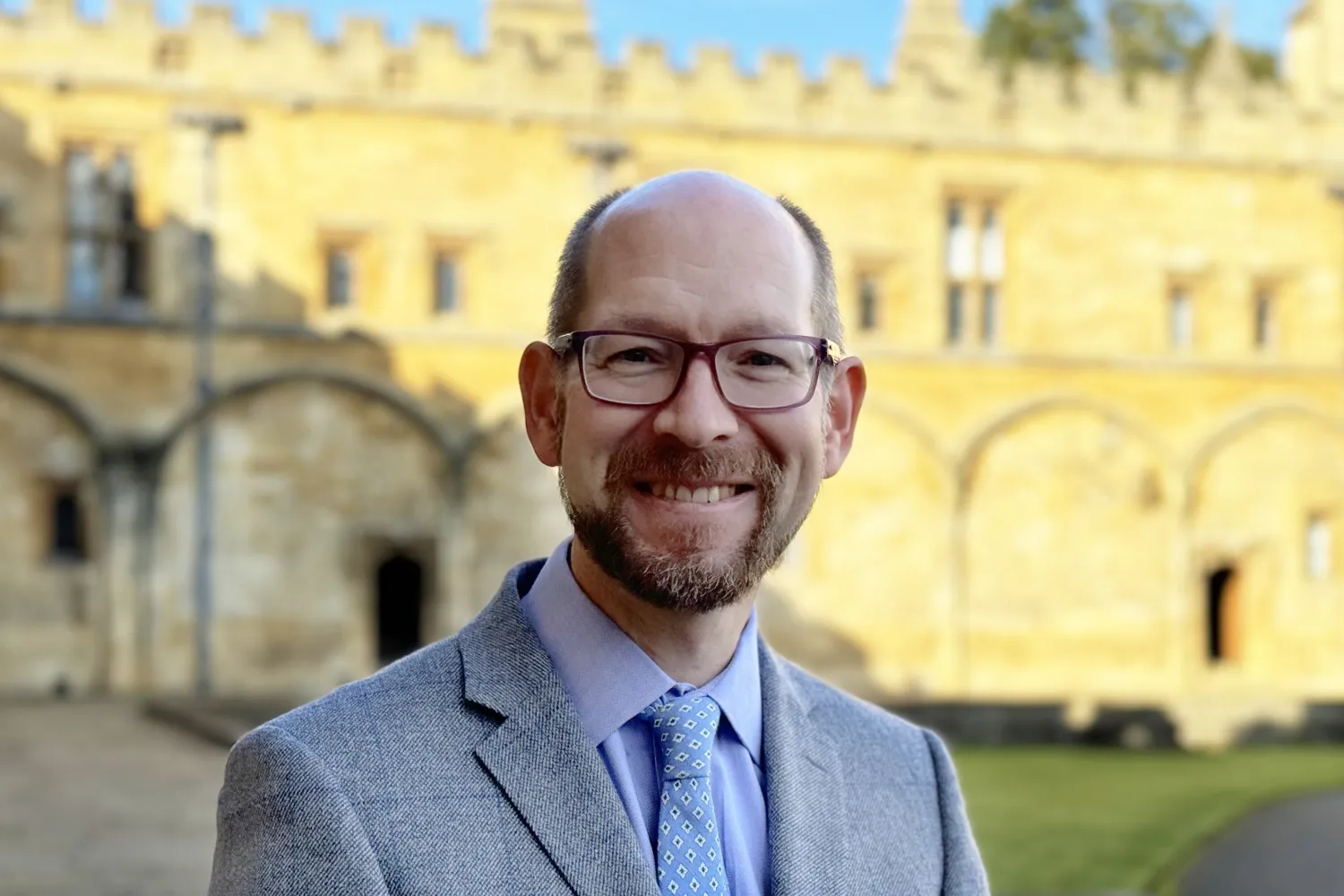Breadcrumb
AI meets theology: in conversation with our new Regius Professor of Divinity
What is our new Regius Professor of Divinity, Andrew Davison, doing writing about AI? We caught up with him to find out.
'If I'm doing anything unusual,' Professor Davison told us, 'it's not that I'm a theologian writing about AI. Plenty of theologians are working on that. After all, our religious traditions are invested in human well-being and are concerned – for instance – about people losing their jobs.' So what is unusual about his angle? 'I am not an ethicist by training, so I'm not working on the implications of AI for society, although that’s important. I've been thinking about what theology can offer for thinking about what AI is, how it works, and how to talk about it. Our religious traditions are repositories of a great deal of philosophical wisdom, and I'm interested drawing on them to understand what’s going on under the hood. In my case, I'm working with Christian scholasticism: a tradition of philosophy from the Middle Ages, still very much alive today, that builds on Aristotle, with significant influences from Islam and Judaism.'
So, for one thing, Professor Davison is interested in how we talk about AI. What does he mean by that? 'I took part in a series of conferences on AI when I first started at Cambridge. [He came to us having been Starbridge Professor of Theology and Natural Sciences there.] I was struck by the danger of computer scientists and humanities scholars talking past one another when they use words like "remember", "create", or "solve". It's not that a computer does those things in the same way we can (as humanities scholars like to point out), but neither are we using those words in a completely different way (different like the 'bark' of a tree and the 'bark' of a dog). It struck me that the wonderfully rich conversation about analogy in scholastic thought could be useful. Analogy is about using words across domains, to mean something similar but not exactly the same.' His paper on that theme in the prestigious journal Modern Theology has been much downloaded.
But what about the recent paper, 'Tools are for the worker', published a couple of weeks ago? 'Scholastic philosophy is famous for its love of precision and fine distinctions. A good example comes in how it talks about causes. In the past few years, I've been preparing a book on the theme of mediation (how one thing acts through another or is known through another). For a scholastic like Thomas Aquinas in the 13th century that includes the notion of an instrument or tool, which is anything that an agent accomplishes something with or by. It struck me that insights he had about how instruments feature in our actions ("instrumental causation") could help us think about how we use AI.
'Here, I'm attracted by Aquinas for two reasons. First, that he puts instruments in their place: they don't act; we act with them. That's useful for also putting AI in a properly subordinate place. "Tools are for the worker", Aquinas wrote, not workers for their tools. But he also offered a warm and generous account of instruments: he recognised the part they play in our actions. For instance, while it's more true to say that the sculptor carves a statue than that the chisel carved it – if we had to say only one thing, we'd say the former – Aquinas recognised that there's a sense in which the chisel does produce what is made. Actually, I said two things, but Aquinas and his early modern followers offer a whole list of angles on what it means for something to be an instrument, and I explore half a dozen or more in the paper in relation to AI.'
Professor Davison thinks that this tradition of Christian thinking, built on Aristotle, enriched from Plato, developed in dialogue with Jews and Muslims, has plenty more to offer for thinking about AI. We look forward to future instalments.
The Revd Professor Andrew Davison is Regius Professor of Divinity at the University of Oxford. Learn more about him and his research via his Christ Church profile.


